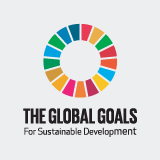Waste management in remote areas: Arctic conundrums
There are about four million people living in the Arctic, spread across eight countries: Canada, Denmark, Finland, Iceland, Norway, Russia, Sweden, and the United States.
With such a low population density, one would expect the Arctic environment to remain free of mismanaged waste and pollution. However, just like in the rest of the world, increasing amounts of plastic and other waste are accumulating in the Arctic. Increasing sightings of waste in the Arctic Ocean and on its remote beaches have alerted the local and international communities to this critical problem in recent years.
The global trajectory indicates that plastic production will double by 2040, posing a significant threat of environmental contamination.
Many remote Arctic communities face similar issues for waste disposal. Their location presents them with unique challenges for obtaining suitable infrastructure to manage their waste and for transporting it, making recycling especially difficult in the Arctic.
This story has presented some of the initiatives for the Arctic to work towards a better waste management scheme for the future.
In this project, GRID-Arendal has worked with partners to visualize some of the unique challenges of remote Arctic areas. Through extensive research, developing visual maps and collaboration, we hope to convey the narrative in a an engaging and accessible format. The project highlights the importance of fostering collaboration, advancing sustainable practices, and developing community-driven strategies.





